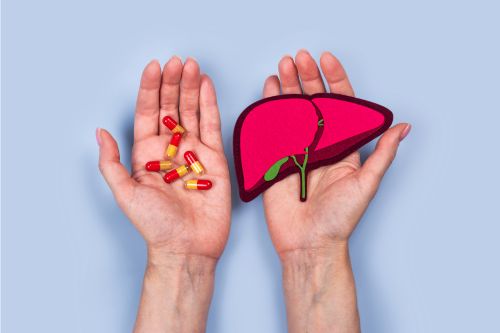4 Min Read
How To Make A Healthy Balanced Breakfast

“Eat breakfast like a king, lunch like a prince and dinner like a pauper”. Breakfast is often described as the most important meal of the day providing sustained energy for the hours ahead. With intermittent fasting becoming quite popular these days, people are eating later at night and skipping breakfast. Some research suggests that fasting and skipping a late dinner vs. skipping breakfast may be more useful. Our bodies are more insulin sensitive in the morning, making it more likely to use the food for fuel vs. storing it. When we first wake up, cortisol (stress hormone) is at the highest. Too much and too little cortisol can both be a bad thing, so we must aim to keep this hormone in complete balance. Eating regularly can help to balance cortisol levels, especially in the morning to help boost our energy levels first thing.
Life is especially busy in the mornings, whether it’s getting to school or getting to work on time – our mornings are always on the go! This makes it hard to prepare a well-balanced meal in the morning. Breakfast can be an exciting way to start the day and can be more than just a bowl of cereal or tea while running out the door! When we start the day off with a carbohydrate-heavy meal, we enter a blood sugar roller coaster ride. This throws off our hormone signalling and tires out our adrenal glands. Eating a balanced breakfast that includes protein, healthy fats and fibre is the best way to regulate blood sugar levels which would eliminate fatigue, anxiety and irritability throughout the day.
Cereal, muffins or even just fruit on its own are not the best breakfast options! So, if you can’t eat cereal every morning, what should you be eating?
There are 4 necessary components that every breakfast meal should contain:
1. Protein
Aim for 15 grams of protein in the mornings. Protein keeps your blood sugar stable, which balances both mood and energy. For those of you who get the 3 pm dip in energy with a sudden craving for sweets and caffeine, you will notice sufficient protein intake in the morning can help to stabilize your energy throughout the day.
The right amount of protein will also keep you fuller for longer. Some protein sources include hemp seeds, nuts, eggs, meat, Greek yoghurt and natural peanut butter. Greek yoghurt has about 20-25 grams of protein. Opt for the unflavoured, unsweetened yoghurt. Keep in mind that 1 egg has about 6-7 grams of protein, so make sure to compound eggs with some nuts or yoghurt. Homemade omelettes are great! Add in some of your favourite greens (spinach, peppers), leftover turkey breast, sundried tomatoes and goat cheese!

2. Fibre
Fibre is super important to keep you fuller for longer periods of time. Aim for 5-10 grams of fibre in the morning. Try adding some chia, flax or hemp seeds to your morning routine.
3. Healthy Fats
Similar to protein, fat satiates us, keeping our blood sugar stable. Ensure to include healthy fats in the morning like, avocado, olive oil, fish oil, nuts, seeds, grass-fed butter or coconut. Coconut oil is great as it contains medium chain triglycerides that bypass the digestive system, giving you immediate energy. Healthy fats help to keep inflammation low and balance hormones. Fat bombs are a great option first thing in the morning. Mix some almond butter, coconut oil, cacao powder, coconut flour and some almonds. Roll them into small balls and place in the fridge!

4. Greens
We tend to skimp on the green leafy vegetables, which have health-promoting effects! Getting 1 to 2 servings in the morning can boost our daily intake. Greens are packed with phytonutrients and antioxidants. A simple way to accomplish this is to add your favourite greens powder to some water first thing in the morning.

A well-balanced breakfast should contain portions of protein, fibre, healthy fat and greens. Avoiding carbohydrates in the morning will allow us to harness our body’s fat burning potential, as our body will turn to glycogen and fat stores if it cannot find glucose! Our metabolism is most revved up in the mornings, so ensuring our breakfasts are well–balanced can help with weight loss, better mood and sustained energy throughout the day. For those of you who are doing the 14-16 hour intermittent fasting regimen, a late breakfast meal is better than no breakfast. Diversify your options for morning meals to ensure you never get tired of the same thing over and over again! Happy Breakfasting :)
Written by: Dr. Saira Kassam | 2018



